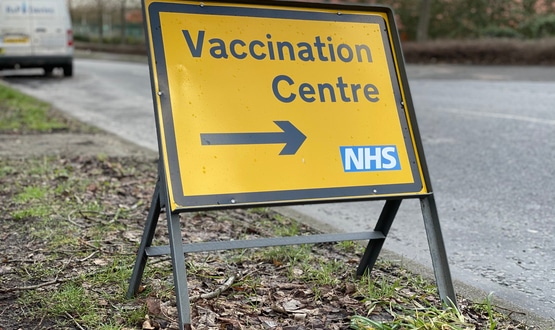Another view: of hanging up on the phone

Last month, I went through some parts of a draft primary care strategy I am writing for our not for profit GP federation.
I covered some of my ideas around IT infrastructure, improvements to the communication tools we use, our social networking platform for shared learning, and our informatics plans.
The latter aim to help everybody understand what we are doing, the impact changes will have, and our ‘martini principle’ of being able to see any patient ‘any time, any place, anywhere’.
I didn’t really talk much about the patient experience or how we might interact with our patients better. As you probably know by now, there is a workforce crisis and both GPs and practice nurses are in short supply.
As an aside I think clinical pharmacists have a huge role to play in primary care – not working from chemist shops, but from surgeries. However, they aren’t growing on trees either.
I suspect that the government is going down the route of physician’s assistants; but I’m not convinced they bring anything. Employing some will mean trying to recruit people from non-health related subjects, who will lack experience.
Anyway, all this means we need IT to deliver more efficient, less costly healthcare – I need, as a provider, to do more with less. We need it to direct people to the right service, first time, and to make our service “leaner” to use an old term.
So where is the waste? Well if we were to process map GP interactions I think there are wastes at multiple levels.
Contacting the practice
We are locked into the phone – why? Well, the intelligence of receptionists is the answer. Contrary to the popular image of receptionists as ‘dragons’, most are lovely people wanting to help their fellow citizens by making sure they see the person they need to see.
Capturing this intelligence is the key. Understanding what they are doing is vital. A lot of surgeries, if asked, say that they want queuing systems for their phones. However, in itself, this just means people wait instead of having to ring back which, in theory, could be costing them more.
We are lucky to have an informatics package that tells us how many people are ringing and how many calls it is taking to get through. Without being able to assess capacity and demand, as well as activity, you never improve.
Working at scale might also help. Every practice has people answering the phone – often not enough, in my opinion. However, you can bet that when my girls are busy the surgery down the road is quiet and vice versa.
Enterprise working is the key. What we need is the ability for calls to move to the next free person across a group of practices.
Our GP federation is thinking about setting up an overflow service to act as a reserve for all practices. Ok, some of the individuality and local knowledge might be lost. So standardising systems and process will be necessary. But this could be very cost effective, done at scale.
However, it makes sense to improve online appointment booking as well. For some reason, people don’t like being asked why they want an appointment by a receptionist. Most seem much happier to tell a computer.
Despite this, the online appointment booking system the government is pushing us to use is simplistic at best. Much cleverer systems are needed; ones that make sure you don’t book with me for a smear!
An administrator can deal with a prescription request, a nurse with a wound, a sexual health worker with a pill check. You don’t need the on-call doctor for any, never mind all, of these.
I’ve seen that Hurley Group has some software that tries to direct people to self care, triages them in urgency and location, and generally tries to get them to the right people. Other people have software that aims to do the same.
I’m not yet convinced that what I’ve seen will exactly fit with what I’m thinking, and any system we picked would need to integrate with Emis online, as that’s what my patients use. But this is an area that a lot of practices and suppliers are thinking about. What we need is a breakthrough.
After the consultation
Informatics packages like the one we are developing will help identify frequent fliers. Once you’ve done that, there are clever things you can do, such as look at the average number of consultations per condition/presenting symptom and trying to find outliers in terms of patients – or indeed clinicians.
However, we still need to maximise efficiency. One of my partners rings tens of his patients every lunchtime as he’s so short of appointments. It’s a great service; but effectively he’s doing an extra surgery.
I often supervise registers or junior GPs. They have a habit of bringing people back, to check whether what they have done is working. It’s a bad habit in the long run, as it cuts your availability, but is often tolerated in trainees.
Of course, it’s nice to have a ten minute slot in which someone sits there saying: “I’m better, thanks doctor” – but we can’t afford this anymore.
The patient related outcome measures IT stuff also needs developing for GPs. I’ve seen this work for urology. Email the patient six weeks post surgery, get them to do a quality of life score, and if it’s ok they don’t need an appointment.
I’ve seen some physio software that does same – it asks patients how they are doing and if they are ok it discharges them.
So why can’t this be done for more routine follow-ups? Ten days after I’ve seen someone, I press a button on my screen, the patient gets asked how they are and if they are ok I get a message to reassure me. If they’re not ok, they get offered an appropriate follow-up appointment.
Contacting patients
We waste a huge amount of time trying to contact patients. Even though email and mobile phones exist, we end up ringing people at home and then, because we can’t leave messages, writing to them. The phone calls and postage also carry a huge financial cost.
My bank has a secure portal. I get an email telling me there is a message. I have to log-in to see it. They can contact me – I can only contact them as an organisation. Every time I contact them, they make sure they have up to date information on me.
Why don’t we do the same? Just because the NHS is free and people have a right to use it doesn’t mean they shouldn’t also have a responsibility to keep us up to date. A condition of being a member of my practice should be that a patient gives me an email address and mobile number to contact them on.
As practices increasingly work together, the benefits that other industries and sectors have made in terms of call center type techniques and keeping in touch with their clients make more sense. Next time, I will discuss some of our thoughts on other benefits of federated working.


Dr Neil Paul
Dr Neil Paul is a full time partner at Sandbach GPs; a large (22,000 patient) practice in semi-rural Cheshire. He is also one of the directors of MandN Heathcare Ltd. Dr Paul has been involved in primary care IT and health service management for more than ten years in various roles, including PEC member and urgent care lead. In his spare time, he writes medical iPhone software and is a keen photographer.




